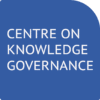Twenty-five years ago, the then-new Internet Corporation for Assigned Names and Numbers (ICANN) adopted a virtual dispute policy for domain names as its first “consensus policy” and that policy is now due to be reviewed. A comment filed last week by PIJIP professors and fellows Christine Farley, Kathryn Kleiman and Patricia Aufderheide, together with Rebecca Tushnet, Harvard Law School, Michael Karanicolas, Schulich School of Law at Dalhousie University, and Mitch Stoltz, the Electronic Frontier Foundation, laid bare a deep set of concerns about the troubling role of WIPO in writing this report and key recommendations that it made.
In this report , WIPO casts itself as the leader of the review of ICANN’s Uniform Dispute Resolution Policy, or “UDRP,” yet as pointed out in the PIJIP comments, the role of WIPO raises key structural concerns as WIPO is the world’s leading provider of domain name dispute services. Specifically, the comment calls for structural separation:
“[In 1999] WIPO became the first ICANN-approved generic top level domain (gTLD) domain name dispute providers, and changed its role from rule-maker to dispute forum. This changes the place of WIPO in the process – as a forum convener, not a rule creator… which means that it is difficult—if not impossible—for WIPO to ask hard questions about core structures and to make comparisons to other existing (NIC Chile) and possible systems.”
The comment also questions the lack of comprehensive data analysis in the WIPO-ICA Review – analysis of data that after 25 years is available in abundance:
“After 25 years and over 64,000 UDRP cases brought to WIPO for domain names in the generic top level domain (gTLDs), we expected data: substantive, clear, neutral and statistically valid data. After all, as the first ICANN-approved UDRP dispute provider, WIPO holds this data from the very first UDRP dispute in December 1999 to current ones in June 2025… Yet, this WIPO-ICA Report defaults to the old method of anecdotal evidence: Interviews with the ‘usual suspects’ of well-known people who spend a considerable part of their lives thinking about the UDRP.”
Further, the comment raises deep free speech concerns about a recommendation by WIPO to reveal the names of speakers without their consent. It calls for all UDRP Providers in the future to follow the current practices of WIPO (privately adopted) and disclose the names of domain name registrants against whom a UDRP is filed with very limited exceptions (data now redacted due to GDPR and other comprehensive data protection laws).
Our comment strongly disagreed on free speech grounds:
“For the cost of a UDRP filing, currently $1500 for a single-panelist at WIPO, the report recommends that rules and ethics protecting privacy, anonymity and free speech be thrown aside. The identity of a person or party speaking, critiquing, or criticizing can be revealed to the complainant, even if the registrant is fully protected under their national laws and rights of free expression and privacy, including the right to anonymity and pseudonymity.”
This is only the first volley in UDRP review that is likely to take place over the next few years at ICANN. If you are interested in this material, and especially the fairness and balance of future UDRP rules, and would like to be involved in further discussion, please contact Kathryn Kleiman, Senior Policy Fellow of PIJIP, at Kleiman@american.edu.
Links:
[1] WIPO-ICA UDRP Review Report of April 2025 can be found here.
[2] Our comments can be found here.
[3] All comments to this report can be found here.










